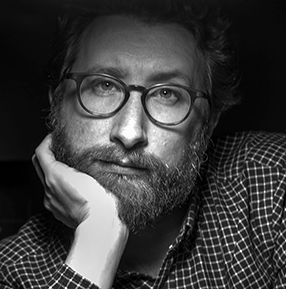Entering Saint Patrick’s Cathedral
I have carried in my coat, black wet
with rain. I stand. I clear my throat.
My coat drips. The carved door closes
on its slow brass hinge. City noises—
car horns, bicycle bells, the respiration
truck engines, the whimpering
steel in midtown taxi brakes—bend
in through the doorjamb with the wind
then drop away. The door shuts plumb: it seals
the world out like a coffin lid. A chill,
dampened and dense with the spent breath
of old Hail Marys, lifts from the smoothed
stone of the nave. I am here to pay
my own respects, but I will wait:
my eyes must grow accustomed
to church light, watery and dim.
I step in. Dark forms hunch forward
in the pews. Whispering, their heads
are bowed, their mouths pressed
to the hollows of clasped hands.
High overhead, a gathering of shades
glows in stained glass: the resurrected
mingle with the dead and martyred
in panes of blue, green, yellow, red.
Beneath them lies the golden holy
altar, holding its silence like a bell,
and there, brightly skeletal beside it,
the organ pipes: cold, chrome, quiet
but alive with a vibration tolling
out from the incarnate
source of holy sound. I turn, shivering
back into my coat. The vaulted ceiling
bends above me like an ear. It waits:
I hold my tongue. My body is my prayer.
Copyright © 2020 by Malachi Black. Originally published in Poem-a-Day on February 3, 2020, by the Academy of American Poets.
“How much of God’s power lies in God’s silence? In the penetrating essay ‘Silence and the Poet,’ George Steiner posits that ‘[w]hat lies beyond man's word is eloquent of God.’ For Steiner, the boundaries of speech are manifest in ‘three other modes of statement—light, music, and silence,’ which, in reaching beyond language, together ‘[give] proof of a transcendent presence in the fabric of the world.’ These may indeed be the limits of discourse—and thus, the exhaustion of speech, which, per Steiner, constitutes ‘the core of man’s mutinous relations to the gods’—but what are the limits of God? This poem plays with an inversion of Steiner’s thought.”
—Malachi Black

